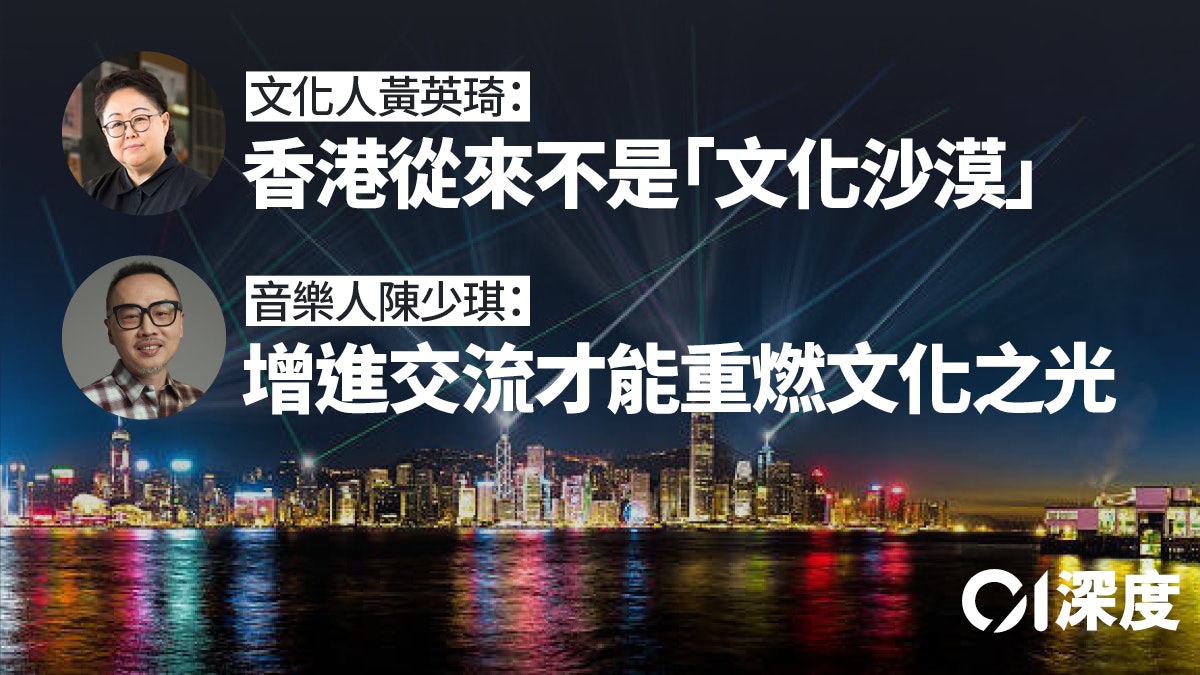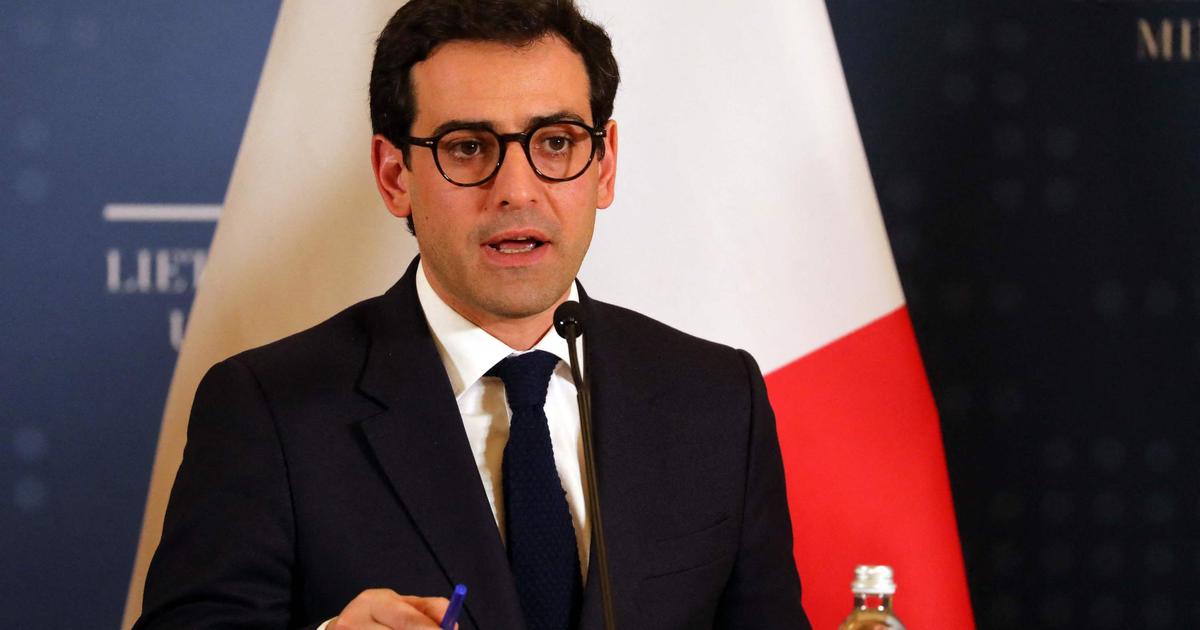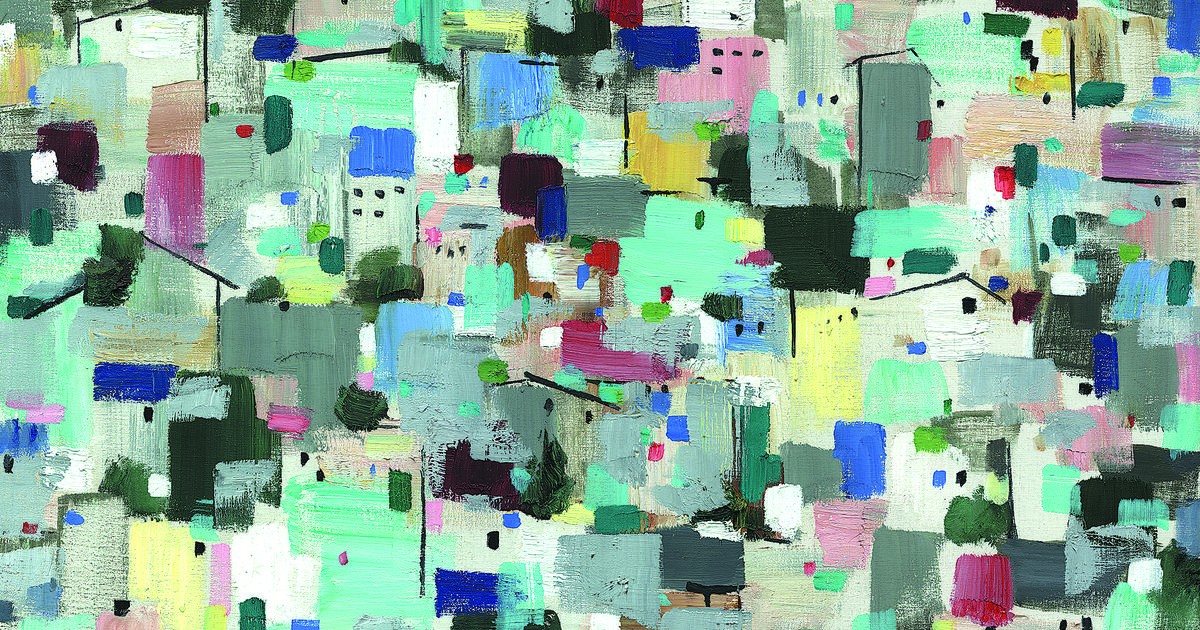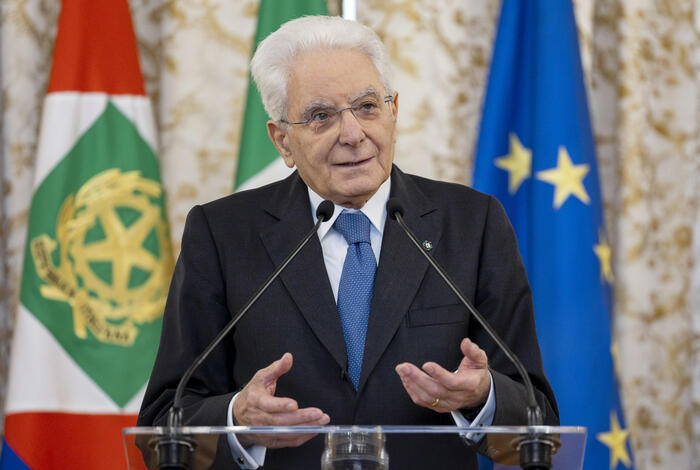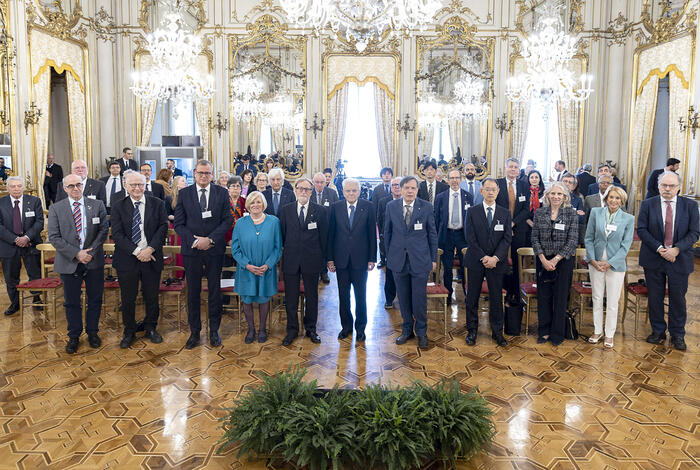On the 25th anniversary of Hong Kong's return to the motherland, there are two major events in the cultural world.
The first is in terms of popular culture. Mainland Hunan Satellite TV and Hong Kong TVB (TVB) jointly launched a large-scale music program "Sounds Endless". Through the method of "old songs and new songs" by Mainland and Hong Kong singers, they re-explored the "Cantonese songs". Development history and cultural heritage.
The second is that the Hong Kong Palace Museum, a key cultural project that has been in preparation for five years, is about to open to the outside world.
The musician Chen Shaoqi and the advocate Huang Yingqi, who have witnessed the rise and fall of Hong Kong's cultural development, had a dialogue with "Hong Kong 01" respectively, and talked about their imagination and direction of Hong Kong's future cultural soft power.
They are convinced that Hong Kong is not a "cultural desert" and that as long as the government is willing to invest sufficient resources, it can still develop infinite possibilities.
"25th Anniversary of the Return of Hong Kong" In-depth Report Series
The mainland Hunan Satellite TV and Hong Kong TVB jointly launched a large-scale music program "Sounds Endless", through the method of "old songs and new songs" by mainland and Hong Kong singers, to re-explore the development history and cultural heritage of "Cantonese songs".
(Official Weibo of "Sound Lives")
"Sounds Endless" Reactivates Cantonese Songs
The popularity of the music variety show "The Sound of Life" has once again set off a wave of Cantonese songs.
When it comes to Hong Kong pop music, Chen Shaoqi, who has been active in the lyric circle for more than 30 years and has composed more than 3,000 works, is definitely one of the musicians who have contributed.
From Anita Mui, Leslie Cheung and Alan Tam, who were popular in Asia in the 1980s, to Jacky Cheung, Huixian Chen, Yilian Li, Hacken Li, Andy Lau, Aaron Kwok, Liming, Cheng Xiuwen, Huilin Chen, and Gigi Leung, who were very popular in the 1990s, to Eason Chan, Twins, and Gu Juji who rose after 2000 , Zheng Rong and other songs, Chen Shaoqi can be seen.
On the day of the premiere of "The Sound of Life", the gold medal musician who has witnessed the rise and fall of Cantonese songs all the way watched the live broadcast specially.
The reporter of "Hong Kong 01" asked him how he felt, and he said that he was both familiar and unfamiliar: "This is the first time that so many singers have sung my song on a mainland program on a large scale." What surprised him even more was that after the premiere, many "90" Fans of "After" and "After 00" interacted with him on the Sina Weibo platform, "Many people left me messages saying that they didn't expect the lyrics of Cantonese songs to be so charming, they thought it was very poetic." Chen Shaoqi sighed, in "Sound Health" On the stage of "Endless", classic songs from decades ago were reactivated, allowing more younger generations to re-understand Cantonese songs. "It will attract more people to pay attention to Hong Kong Philharmonic, and even make Hong Kong Philharmonic."
Compared with the glory of Cantonese songs before the return, many people think that the Hong Kong music scene is declining, but Chen Shaoqi does not think so.
In his opinion, the prosperity of the mainland music market does not mean the decline of the Hong Kong music scene. "It's just that the spotlight has temporarily left the HK Phil. However, the HK Phil is still performing in a dark corner of the stage, and everyone can't see it, so it doesn't mean its level has declined. As long as the spotlight returns, Hong Kong songs will be noticed again." Chen Shaoqi believes that good works and good creators have always existed, and as long as they are noticed again, they will still be able to shine.
Chen Shaoqi believes that Hong Kong people can still seize new opportunities and create another glorious scene under the Lion Rock.
(provided by respondents)
"Xiaotiandi" is still waiting for the opportunity to "create the world"
However, Chen Shaoqi emphasized that the revival of the HK Phil cannot be achieved solely by the popularity of variety shows: "Variety shows are just shows, and many factors such as variety shows and ratings must be considered. It will make more people pay attention to the HK Phil, but it must be It is unrealistic to say that young people will completely fall in love with Hong Kong Philharmonic through a single program." The success of "Sound Lives" provides a development direction that can be used for reference. He hopes that musicians in the Mainland and Hong Kong will strengthen exchanges in the future. Cooperation, the mainland music scene should have more Hong Kong people participating, and Hong Kong music should not be limited to Hong Kong people, so as to promote the new development of the Hong Kong Philharmonic.
Recently, Chen Shaoqi has been very busy.
In addition to "The Sound of Life", he also participated in the production of the official theme song "Before" for the 25th anniversary of Hong Kong's return to the motherland, and is also planning a micro-movie "Departure 2022" - the film records how four 25-year-old young people live in Going to a better life after experiencing ups and downs is like Hong Kong entering a better new era after going through ups and downs.
"Before" is also the opening song of "Departure 2022". The lyrics, like many works by Chen Shaoqi, are filled with the optimism that belongs to Hong Kong: "Dream seekers set off at the starting line / Cross the line under the Lion Rock / May this Hong Kong be created together with one heart. ..." In 2007, when he wrote the lyrics for the birthday song "Always With You", the 10th anniversary of Hong Kong's return to the motherland, he expressed his belief that Hong Kong can create a vast world in a limited space through "Thank you / Xiaotiandi / Creation of the world"; fifteen years have passed. , he still believes that Hong Kong people can seize new opportunities and create another glorious scene under the Lion Rock.
Huang Yingqi said that to develop Hong Kong as a center for cultural and artistic exchanges between China and foreign countries, we must pay attention to art education.
(Photo by Huang Baoying)
"New opportunities" require a large number of "successors"
From the experience of the new generation of singers Yan Mingxi and Zeng Bit who successfully conquered the audiences in the two places with their stunning performances in "The Sound of Life", it can be seen that the younger generation plays an important role in revitalizing Hong Kong culture.
If Cantonese songs are only a part of popular popular culture, then M+, the first global contemporary visual culture museum in Asia, which opened at the end of last year, and the Hong Kong Palace Museum, which will officially open to the public on July 2, are expected to contribute to the development of Hong Kong culture. The other aspect brings sublimation - but it is not enough to have these infrastructures, and it is still necessary to cultivate cultural successors in different fields from all aspects.
"To develop Hong Kong into a cultural and artistic exchange center between China and foreign countries, we must pay attention to art education." Huang Yingqi, a famous cultural advocate and art advocate, said that art education should be cultivated from an early age, but art education in Hong Kong has shown a very utilitarian state, " Although many parents send their children to learn piano and painting, they only want to have a good-looking resume so that they can enter a good school in the future, not to increase their artistic literacy.”
For a long time, the main function of arts education in Hong Kong has been a tool to pave the way for the future, and even the primary school curriculum guidelines issued by the Education Bureau have been implemented in this way.
The Education Bureau began to implement the “Learning to Learn” curriculum reform in 2001, stipulating that the overall curriculum for primary and secondary schools mainly includes eight subjects: Chinese, English, mathematics, science, technology, personal and social studies, arts and physical education. The Curriculum Guide (Primary 1 to Primary 6) emphasizes cultivating students’ interest in physical and artistic activities and basic appreciation.
But in practice, the teaching of art and music is often undertaken by teachers of other subjects.
When the United Kingdom and the United States and other Western countries have stipulated in the art education curriculum regulations that art courses must be taught by professionally trained teachers, in the art classes of primary schools in Hong Kong, art teachers may not necessarily all know how to draw, and math teachers also teach singing—— How to cultivate talents for the development of Hong Kong's culture and art, and how to build Hong Kong into a cultural and art exchange center between China and foreign countries?
Art education in primary schools lacks professional support. It has been clearly stipulated that middle schools where teachers from music or art majors serve as teachers can fill the vacancies in art education?
The answer is, still not.
In 2001, the Curriculum Development Office issued the "Learning to Learn Curriculum Development Direction", which proposed to pay attention to the art learning experience of middle school students, but there was no clear requirement in the school-based curriculum that schools must offer relevant art courses.
Western countries have started new approaches to off-campus cooperation after art education has taken root in schools.
Taking the United Kingdom as an example, after art education was added to the formal curriculum, the Ministry of Education and the Arts Council jointly issued the Artists-Schools Guidelines in 2006, allowing artists to enter schools to help students improve their skills. Good learning art, and schools in Hong Kong are still holding singing competitions to complete the art learning objectives required in the curriculum guide.
The "Basic Education Curriculum Guide (Primary 1 to 6)" has clearly emphasized cultivating students' interest in physical and artistic activities and basic appreciation.
(Photo by Chen Weici)
"Cultural desert" is a derogatory term for British colonialism
"I don't agree that Hong Kong is a 'cultural desert'." In Huang Yingqi's view, this is a pejorative way of speaking about Hong Kong during the colonial period of the British Hong Kong government.
Back then when we called Hong Kong a cultural desert, it was because we felt that Hong Kong lacked elegant art.
"What was culture at that time?" Huang Yingqi asked and answered himself. The so-called culture of the British was Western culture such as listening to classical music and appreciating antique art. At that time, Hong Kong was indeed relatively scarce, but Hong Kong had rich secular culture, while others swept across Asia. Popular music and film and television works.
She described that, strictly speaking, Jin Yong is a representative of secular culture, a kind of down-to-earth spirit, showing urban life; but under colonialism, Western culture has become orthodox, and Hong Kong, which lacks Chinese cultural traditions, has become a so-called "cultural desert".
After the handover in 1997, with the frequent exchanges between Hong Kong and the mainland, Hong Kong has gradually recovered the roots of Chinese culture and continued to develop local characteristics that integrate Chinese and Western cultures.
However, Huang Yingqi believes that Hong Kong's opportunities are not enough. The government must formulate a comprehensive cultural policy, because cultural development without policy support is just a castle in the air, and it cannot truly establish Hong Kong as a solid Sino-foreign cultural exchange center.
In the past, the authorities were often criticized for having multiple departments in cultural decision-making and lack of a unified planning department to integrate cultural affairs, which were scattered in the Home Affairs Bureau, and creative and tourism affairs in the Commerce and Economic Development Bureau; The one-term government has set up a culture, sports and tourism bureau, and the outside world will wait and see.
As for the controversial West Kowloon Cultural District, Huang Yingqi, who was a member of the M+ Advisory Committee, said that the collections in the museum can well display Hong Kong's visual arts culture.
For example, the opening exhibitions of the M+ Museum include Hong Kong: Here and There, The M+ Sigg Collection: From Revolution to Globalization, Objects, Spaces, Interactions, Individuals, Origins, Expressions, Anthony Gormley: The six items of "Asian Land" and "Museum Dream" combine contemporary art from different times and regions to show the diverse characteristics of culture.
But at the same time, she also pointed out that the West Kowloon has hired many foreigners who do not understand Chinese to manage the problem. “There are very few local curators.” When the management does not understand Hong Kong, let alone Chinese culture, it will inevitably be implemented in the policy Misjudgment occurs, and Hong Kong cannot truly give full play to the unique advantages of combining Chinese and Western characteristics.
Huang Yingqi mentioned that the Hong Kong Palace Museum can become a new attempt to promote art technology.
(Getty)
Art and technology should also catch up
In addition to the West Kowloon Cultural District, Huang Yingqi also talked about the Hong Kong Palace Museum, which will open next month.
Wang Xudong, director of the Palace Museum, who made a special trip from Beijing to Hong Kong, said last Monday (June 20) that the completion of the Hong Kong Palace Museum in just five years is a major gift to witness the 25th year of the return of the People's Republic of China. A window to the world to promote the excellent traditional Chinese culture.
He revealed that the Palace Museum will cooperate with the Chinese Academy of Culture in the future to launch cultural lectures to promote traditional Chinese culture in Hong Kong, and will also cooperate with the Hong Kong Palace Museum to promote Chinese culture to the world.
Huang Yingqi specifically mentioned that the Hong Kong Palace Museum is a new attempt to promote art and technology.
For example, the interactive installation that will be used in the exhibition introduced by the museum can lead the audience to travel through time and space, as if going to Jingdezhen to design imperial porcelain products.
"Technology has dominated life now, and in the future, technology will lead the development of art." Huang Yingqi believes that, especially under the new crown epidemic, technology has brought more possibilities for cultural contact. For example, people can visit museums through virtual technology, so that art can A more immersive way to enter the surrounding life is beneficial to the entire cultural industry.
The Palace Museum in Beijing has launched the "Digital Palace Museum", allowing citizens to travel around the museum at home.
(Official website of the Palace Museum)
In fact, Chief Executive Carrie Lam Cheng Yuet-ngor also saw the potential of art technology in her 2020 Policy Address: "Art technology has developed rapidly and can cover a wide range of technologies. , Augmented Reality (AR), real-time image projection, etc.) in artistic creation, to promote the content and transmission of artistic creation, support the inheritance of art, and deepen the participation and experience of the audience.” However, after two years of epidemic, although Hong Kong has many There are many programs using AR and VR technology, but they have fallen behind in the application of art technology.
In contrast, the mainland has already created new cultural and artistic products by combining new media technology with traditional culture and art.
For example, many museums have cooperated with live broadcast platforms to hold "Cloud Travel Museum".
In July 2020, the Palace Museum in Beijing released the "Digital Palace Museum" applet, allowing the public to see the whole picture of the Palace Museum and a high-definition display of 600 precious cultural relics without leaving home, turning on their mobile phones, successfully connecting traditional culture with the times. Let the rigid and ancient ancient culture become understandable, sensible, approachable, let the cultural relics speak, let the history enter the modern times, and let the culture carry forward.
According to the data published on the website of the Forbidden City in Beijing, the post-80s and post-90s have become the main tourist group, with tourists under the age of 30 accounting for 40%.
The large-scale application of art technology not only improves short-term economic benefits, but also attracts the younger generation to join in the dissemination and reproduction of cultural content. This is the only way to keep culture alive in traditional culture and modern technology.
Please
click here
to try out the Hong Kong 01 Electronic Weekly Newsletter for more in-depth reports.
25th anniversary of the return.
Livable | Hong Kong needs to become a world-class livable city for the 25th anniversary of its return.
Livable|Four questions for Hong Kong: What do you want to leave for the next generation?
25th anniversary of the return.
Culture | The 25th anniversary of the return of the Chinese and the Western fusion of soft and hard to grasp the new opportunities for cultural development.
Social Security | Poverty and non-personal problems, the government needs to redistribute and strengthen the social safety net, the 25th anniversary of the return.
Labor Insurance | Restoring the right to collective bargaining finds a new balance in labor relations and returns to the 25th anniversary.
Industry | Reconstructing the regional competition and cooperation relationship to break the industrial predicament

